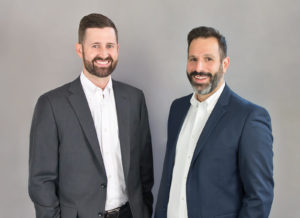 Georgia Medicaid is a crucial healthcare program for many low-income individuals and families in the state. However, when a Medicaid recipient is involved in a personal injury case, navigating the complexities of the program can be challenging. In this comprehensive guide, we will explore the role of Georgia Medicaid in personal injury cases and how it can impact settlements and verdicts.
Georgia Medicaid is a crucial healthcare program for many low-income individuals and families in the state. However, when a Medicaid recipient is involved in a personal injury case, navigating the complexities of the program can be challenging. In this comprehensive guide, we will explore the role of Georgia Medicaid in personal injury cases and how it can impact settlements and verdicts.
Georgia Medicaid is a state and federally funded program that provides healthcare coverage for eligible low-income individuals and families. To qualify for the program, applicants must meet specific income and residency requirements. Georgia Medicaid covers a wide range of medical expenses, including hospital stays, doctor visits, prescription medications, and more.
When a Medicaid recipient suffers a personal injury, the program may cover the medical expenses related to that injury. However, if the injured party receives compensation from a personal injury settlement or verdict, Georgia Medicaid has the right to seek reimbursement for any medical expenses it has paid on behalf of the recipient. This connection between Georgia Medicaid and personal injury cases is crucial for both the injured party and their attorney to understand.
Subrogation is the process by which Georgia Medicaid seeks reimbursement for medical expenses it has paid on behalf of an injured party who has received compensation from a personal injury settlement or verdict. This process allows the program to recover costs from the liable party or their insurance company, ensuring that taxpayers are not burdened with the expenses of the injured party that should be covered by the responsible party.
In a personal injury case, the injured party’s attorney must consider Georgia Medicaid’s subrogation rights when negotiating a settlement or pursuing a verdict. This involves identifying and documenting the medical expenses paid by Medicaid related to the injury and ensuring that these expenses are accounted for in the settlement or verdict.
There are several steps involved in the subrogation process, including:
Notification: Georgia Medicaid must be notified of the personal injury claim by either the injured party or their attorney. This allows the program to track the expenses it has paid and assert its subrogation rights.
Verification: The injured party’s attorney must verify the medical expenses paid by Georgia Medicaid related to the injury. This may involve obtaining medical records, billing statements, and other documentation to establish the extent of Medicaid’s financial involvement.
Negotiation: During settlement negotiations, the injured party’s attorney should take Georgia Medicaid’s subrogation rights into account when determining a fair compensation amount. This may involve negotiating with the liable party or their insurance company to ensure that the settlement covers not only the injured party’s damages but also reimburses Medicaid for its expenses.
Reimbursement: Once a settlement or verdict has been reached, the injured party’s attorney must ensure that Georgia Medicaid is reimbursed for the medical expenses it has paid related to the injury. This may involve setting aside a portion of the settlement or verdict to satisfy Medicaid’s subrogation rights or negotiating a reduced reimbursement amount with the program.
By understanding and addressing Georgia Medicaid’s subrogation rights, the injured party’s attorney can help ensure a fair and just outcome in the personal injury case while also protecting the interests of the Medicaid program and taxpayers.
When negotiating a personal injury settlement, it is essential to consider the impact of Georgia Medicaid’s subrogation rights on the final compensation amount. The attorney must balance the injured party’s needs with Medicaid’s right to reimbursement, ensuring that the settlement covers medical expenses, lost wages, pain and suffering, and other damages. In some cases, Georgia Medicaid may be willing to negotiate a reduced reimbursement amount, allowing the injured party to retain more of their settlement or verdict.
Navigating the complexities of Georgia Medicaid and subrogation in a personal injury case can be challenging. It is crucial to work with an experienced personal injury attorney who understands these intricacies and can advocate for the injured party’s rights and interests. An experienced attorney can help ensure a fair and adequate settlement or verdict, taking into account Georgia Medicaid’s subrogation rights.

If you or a loved one is a Georgia Medicaid recipient involved in a personal injury case, don’t hesitate to seek expert legal advice. Contact Cohen & Sinowski for a free consultation with our experienced personal injury attorneys who can help you navigate the complexities of Georgia Medicaid and fight for the compensation you deserve.